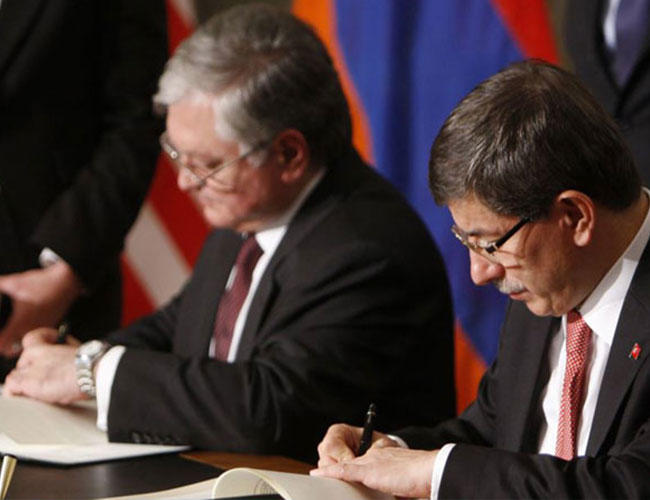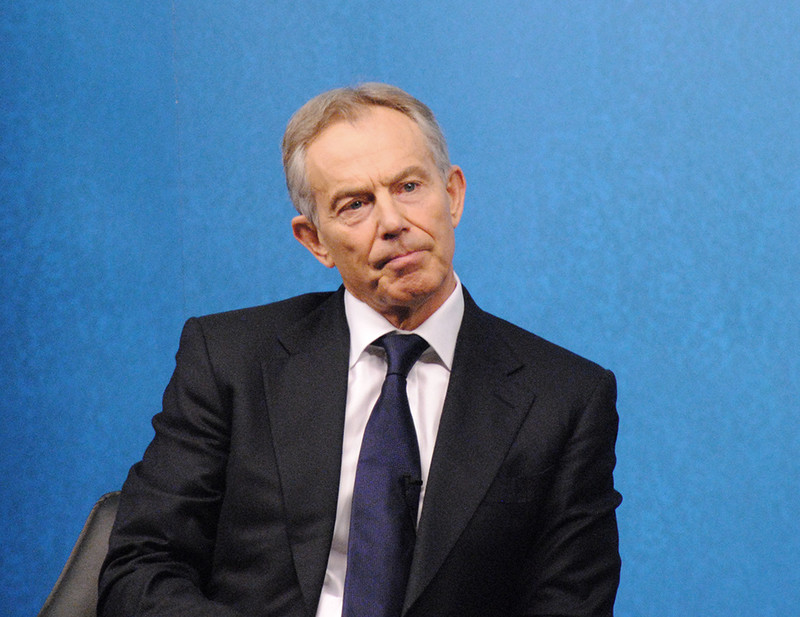EurActiv (2 March 2018)
The digital revolution is just around the corner. Luc Triangle, General Secretary of industriAll Europe, highlights that as well as being economically ambitious, we need an industrial strategy that is socially sustainable and fair.
At EU Industry Day one week ago, more than 600 industrial stakeholders from across Europe agreed that an ambitious and fair European industrial policy is critical for the future of the EU.
The industrial sectors are paramount for economic growth, jobs and the competitiveness of Europe. IndustriAll Europe is proud that Europe is a world leader in Innovation and Research & Development, but major challenges such as globalisation and digitalisation must be dealt with correctly to secure existing industrial jobs and to create even more jobs in the future.
These issues cannot be addressed by national policies, simply because the scale of the challenge is beyond that of a single nation. We believe that a strong European Industrial Policy is needed to support the further development of our industry and create and keep jobs in Europe.
Europe needs more investment to be the most innovative region in the world, to take the lead in the energy transition, climate change and the circular economy. Europe has to be front and centre to compete and grow at a global level.
Workers are at the helm of European industry. No matter how ambitious the strategy – if we lose sight of the importance of involving, training and protecting workers in the process, the strategy will come undone.
We are calling on policymakers and industry to work together with trade unions to put in place an industrial strategy that is not only ambitious but also socially and environmentally sustainable and fair.
Emphasis on Quality
A linear model of industrial production can no longer be our goal. Production at all costs will undoubtedly lead to a race to the bottom in terms of price, quality and conditions of work. That is without even considering the environmental aspects of such a policy.
A future industrial strategy needs to engage vigorously in more social equality, less precariousness, and in a Circular Economy, in order to decouple social and economic welfare from resource usage.
Industrial products should meet demanding, legally-binding requirements in terms of user and environmental safety, but also of energy efficiency, life duration, and capacity to be maintained, repaired, re-manufactured, dismantled and, ultimately, recycled.
It should come as no surprise that we believe that industrial workers should be key players in this discussion. Despite great enthusiasm about the possibilities that technological progress can bring, there is profound uncertainty among employees as to where these changes will take them. Not only industrial trade unions but all stakeholders have a duty, to shape this transformation for the welfare of all.
Any future-oriented industrial policy needs jobs, quality jobs. Quality job creation, for us, is an important criterion to evaluate successful industrial policy. In particular, this means jobs for all, not only for the highly qualified engineers that we need, but also quality jobs for operators, technicians, and all other workers. Quality work also means attractive wages, job security, social protection and good career opportunities.
Quality of work can only be obtained through quality of employment (i.e. of contractual relations, collective bargaining institutions and social rights), of industrial relations and social dialogue based on adequate Information and Consultation of workers, and of skills and training.
Ready for Tomorrow
Digitalisation will undoubtedly have an impact on the future of work. Certain jobs carried out by workers will be replaced, others transformed. This means that while some jobs will be lost, new jobs will be created.
Anticipation of the skills needed down the line has to happen now so that we are prepared for change and workers transition smoothly into Industry 4.0. As the old adage goes, failing to prepare is preparing to fail.
Every worker should have prospects within the future of industry. When new jobs are created, skilled workers need to be ready to take up those jobs. Public authorities and companies need to invest more in skills and training. Not only upskilling but also re-skilling of workers currently employed in industrial production. An intergenerational approach must consider the needs of older and younger workers alike.
In an age of automation, every worker must have greater control over his/her working arrangements.
We believe in sharing the costs, risks and benefits of industrial change, and specifically of digitalisation and of the transition to sustainability, under the concept of a “just transition” for the sectors and regions most impacted. Economically-weak regions and EU member states must be supported in their upward convergence towards EU best practice.
There must be a place for every member state within the future of European Industrial Policy. Future EU Trade Policy will also have to combine free trade with fair trade.
The transformation of industry has already begun. Timely anticipation of change with democratic involvement of workers and investment in skills for all is crucial to guarantee that European industry remains relevant and fit for purpose.
We are at a pivotal moment, not only for workers but for society as a whole. IndustriAll European Trade Union believes that Industry 2030 should combine the challenge of Europe remaining a thriving industrial region in the world, together with improving both quality of life and quality of work.
The future of industry and manufacturing is crucial for a prosperous Europe and we will be working on behalf of our members for a future that benefits industry and workers, keeping jobs in Europe. The EU needs a strong and ambitious Industrial Policy that benefits industry, workers and the whole of society.
Any successful future industrial strategy will need to appeal to all members of society. The future industrial strategy of the EU must therefore have the social dimension (values, society, people, employees) at its core. No one can be left behind in this transition and in the design of Industry 2030.
No comments yet.
- IRAN LOSING HISTORIC CHANCE TO CAPTURE GAS MARKET SHARE Asia - Pacific 02.03.2018
-
 ARMENIA SCRAPS DEAL WITH TURKEY DESIGNED TO NORMALIZE RELATIONS
The Caucasus and Turkish-Armenian Relations
02.03.2018
ARMENIA SCRAPS DEAL WITH TURKEY DESIGNED TO NORMALIZE RELATIONS
The Caucasus and Turkish-Armenian Relations
02.03.2018
- INTERNATIONAL IMPORTANCE OF KAZAKHSTAN – OPED Asia - Pacific 02.03.2018
- DELIVERING ON COMMITMENTS: NEW PROGRAMMES TO PROTECT MIGRANTS AND SUPPORT RETURN AND REINTEGRATION IN AFRICA WORTH €150 MILLION ADOPTED Europe - EU 02.03.2018
-
 EU REFORMS COULD TURN AROUND BREXIT, BLAIR SAYS
Europe - EU
02.03.2018
EU REFORMS COULD TURN AROUND BREXIT, BLAIR SAYS
Europe - EU
02.03.2018
-
25.01.2016
THE ARMENIAN QUESTION - BASIC KNOWLEDGE AND DOCUMENTATION -
12.06.2024
THE TRUTH WILL OUT -
27.03.2023
RADİKAL ERMENİ UNSURLARCA GERÇEKLEŞTİRİLEN MEZALİMLER VE VANDALİZM -
17.03.2023
PATRIOTISM PERVERTED -
23.02.2023
MEN ARE LIKE THAT -
03.02.2023
BAKÜ-TİFLİS-CEYHAN BORU HATTININ YAŞANAN TARİHİ -
16.12.2022
INTERNATIONAL SCHOLARS ON THE EVENTS OF 1915 -
07.12.2022
FAKE PHOTOS AND THE ARMENIAN PROPAGANDA -
07.12.2022
ERMENİ PROPAGANDASI VE SAHTE RESİMLER -
01.01.2022
A Letter From Japan - Strategically Mum: The Silence of the Armenians -
01.01.2022
Japonya'dan Bir Mektup - Stratejik Suskunluk: Ermenilerin Sessizliği -
03.06.2020
Anastas Mikoyan: Confessions of an Armenian Bolshevik -
08.04.2020
Sovyet Sonrası Ukrayna’da Devlet, Toplum ve Siyaset - Değişen Dinamikler, Dönüşen Kimlikler -
12.06.2018
Ermeni Sorunuyla İlgili İngiliz Belgeleri (1912-1923) - British Documents on Armenian Question (1912-1923) -
02.12.2016
Turkish-Russian Academics: A Historical Study on the Caucasus -
01.07.2016
Gürcistan'daki Müslüman Topluluklar: Azınlık Hakları, Kimlik, Siyaset -
10.03.2016
Armenian Diaspora: Diaspora, State and the Imagination of the Republic of Armenia -
24.01.2016
ERMENİ SORUNU - TEMEL BİLGİ VE BELGELER (2. BASKI)
-
AVİM Conference Hall 24.01.2023
CONFERENCE TITLED “HUNGARY’S PERSPECTIVES ON THE TURKIC WORLD"









